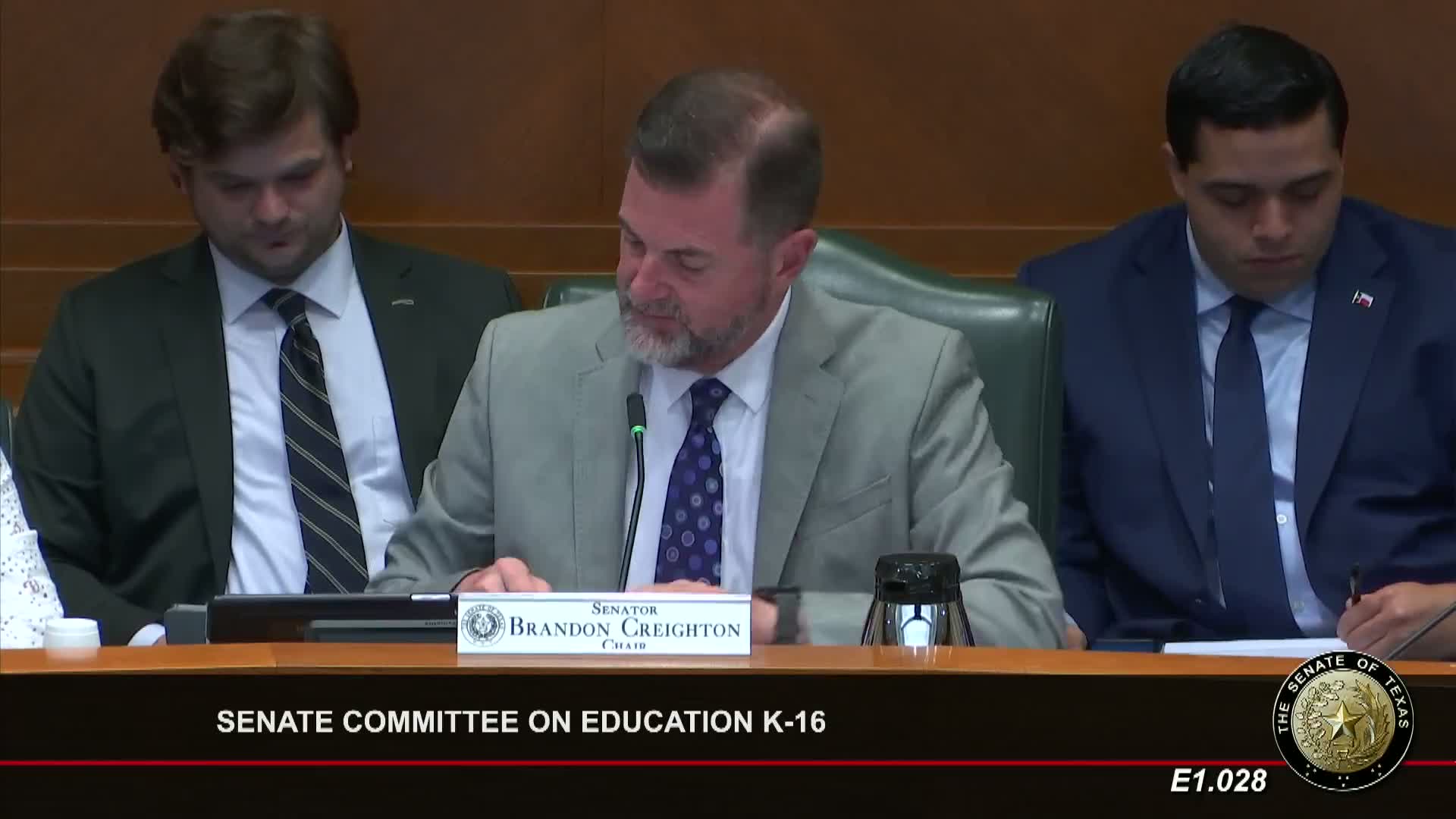Article not found
This article is no longer available. But don't worry—we've gathered other articles that discuss the same topic.
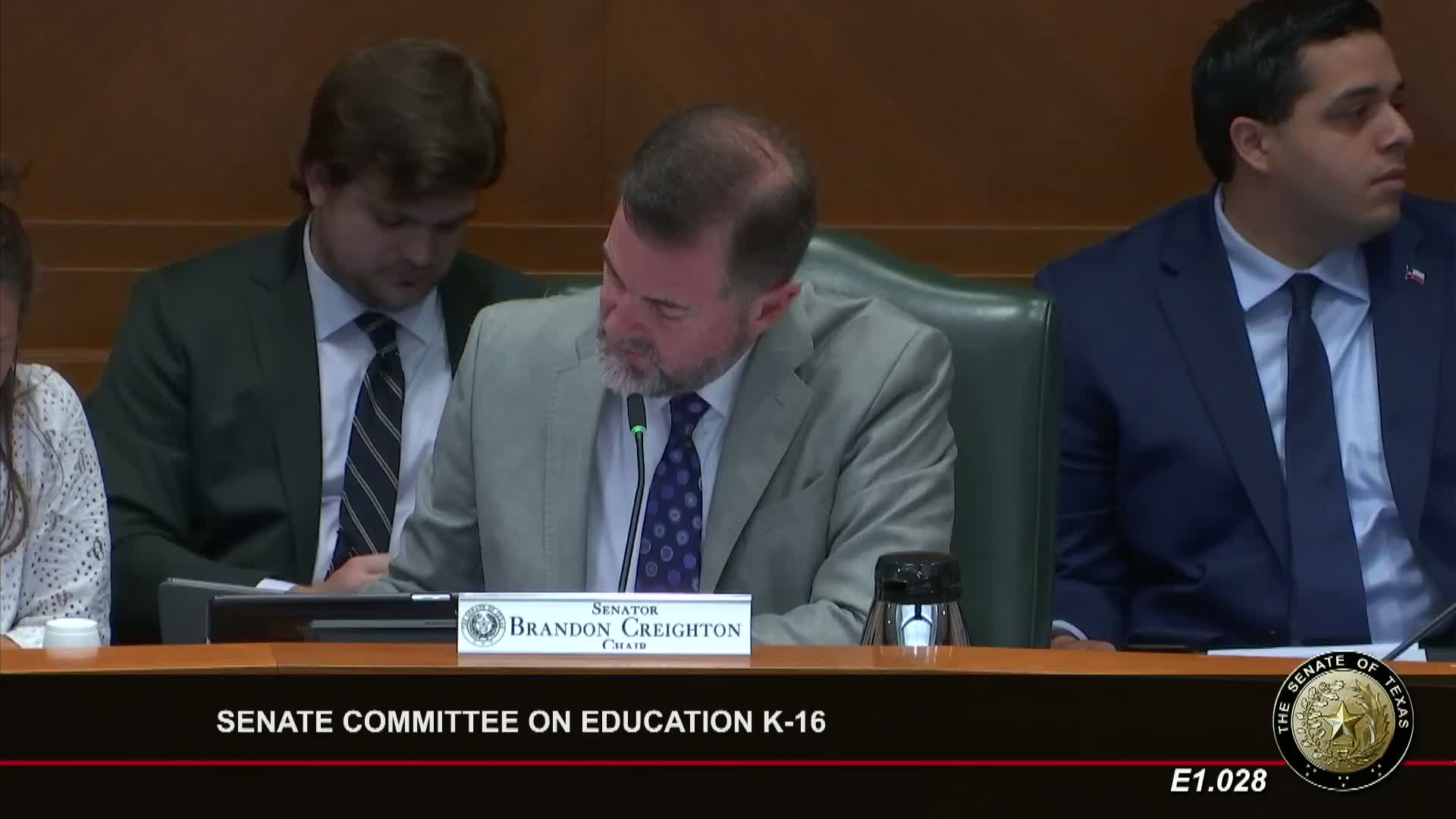
Senate panel advances bill to let districts optionally admit allied military children by calendar-year age
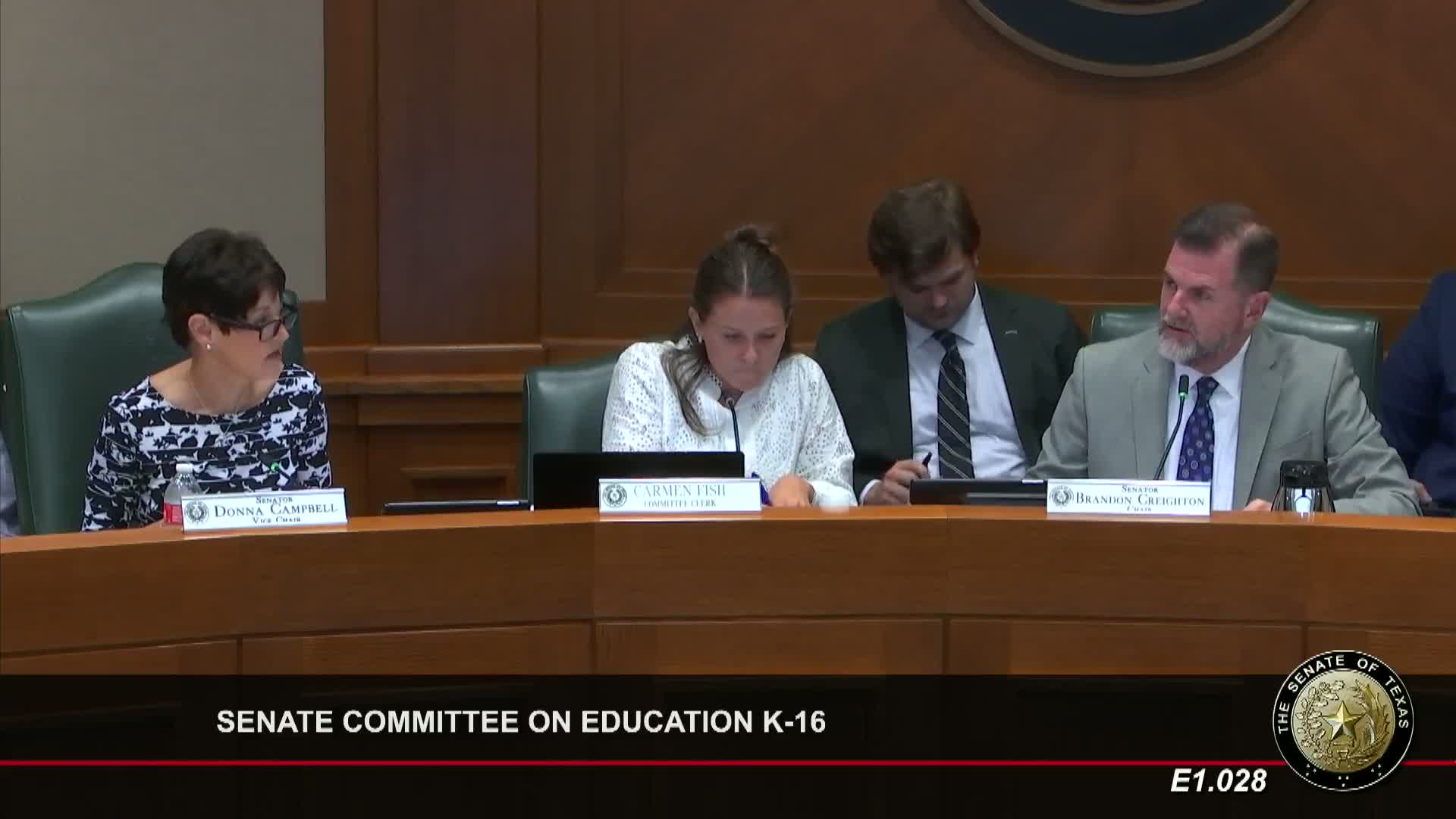
Committee backs bill to expand early math and literacy screening and teacher training
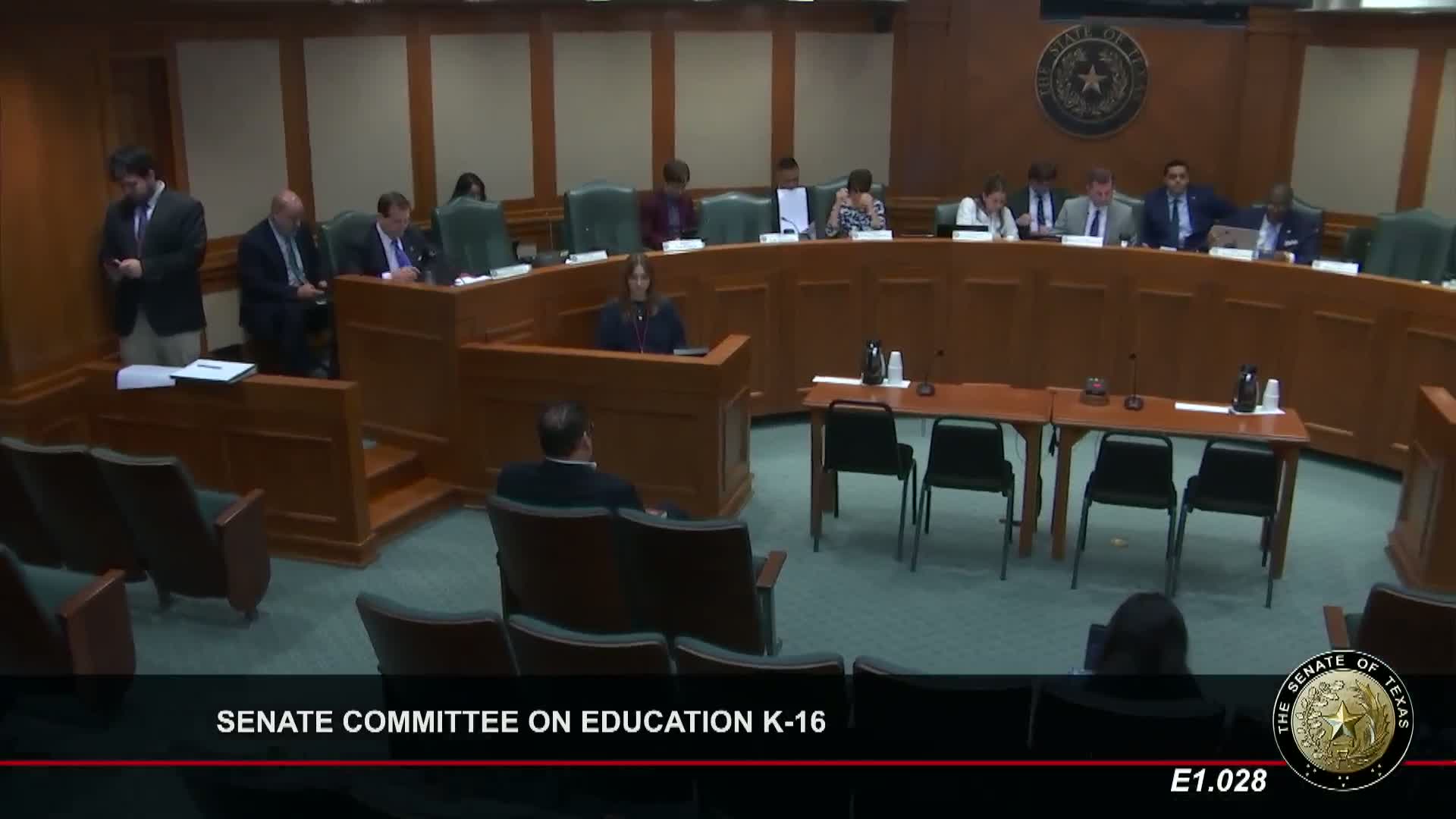
Bill would require Sunset Commission to forensically review two districts per region; committee approves measure
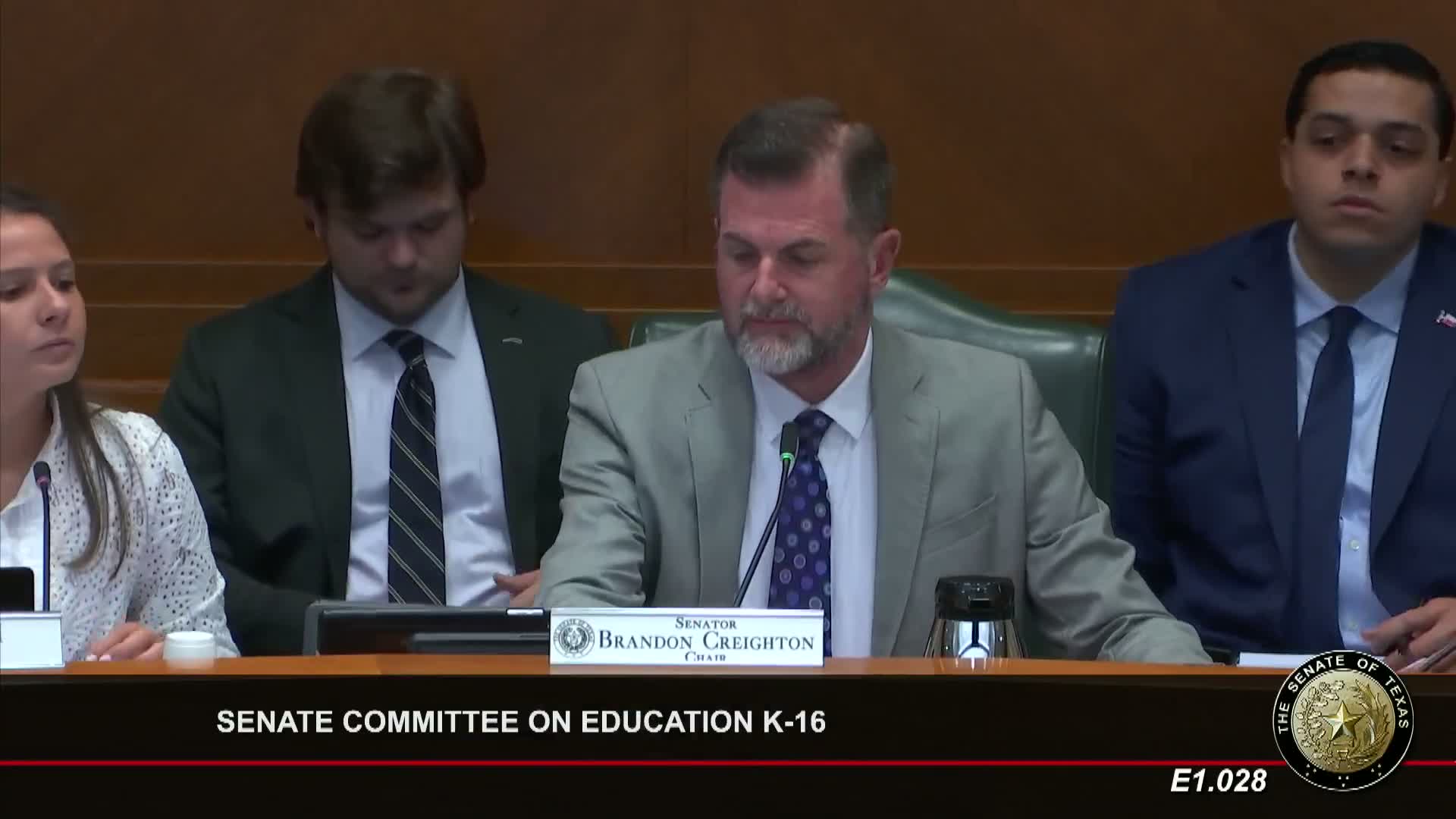
Committee approves bill allowing schools to accept and place airway-clearance devices to address choking risks
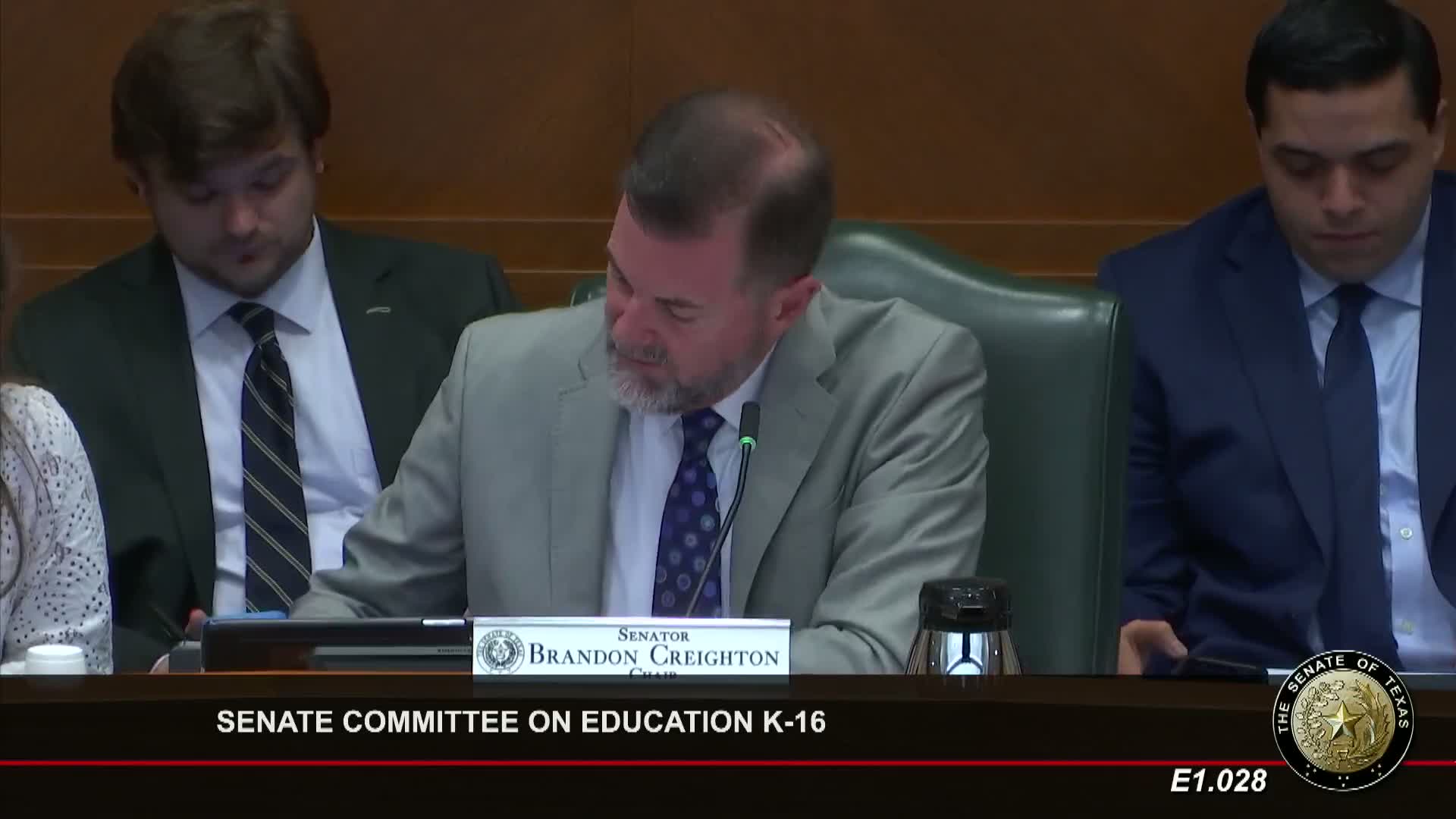
Committee advances “Rocky’s Law” to expand interstate compact protections for military children
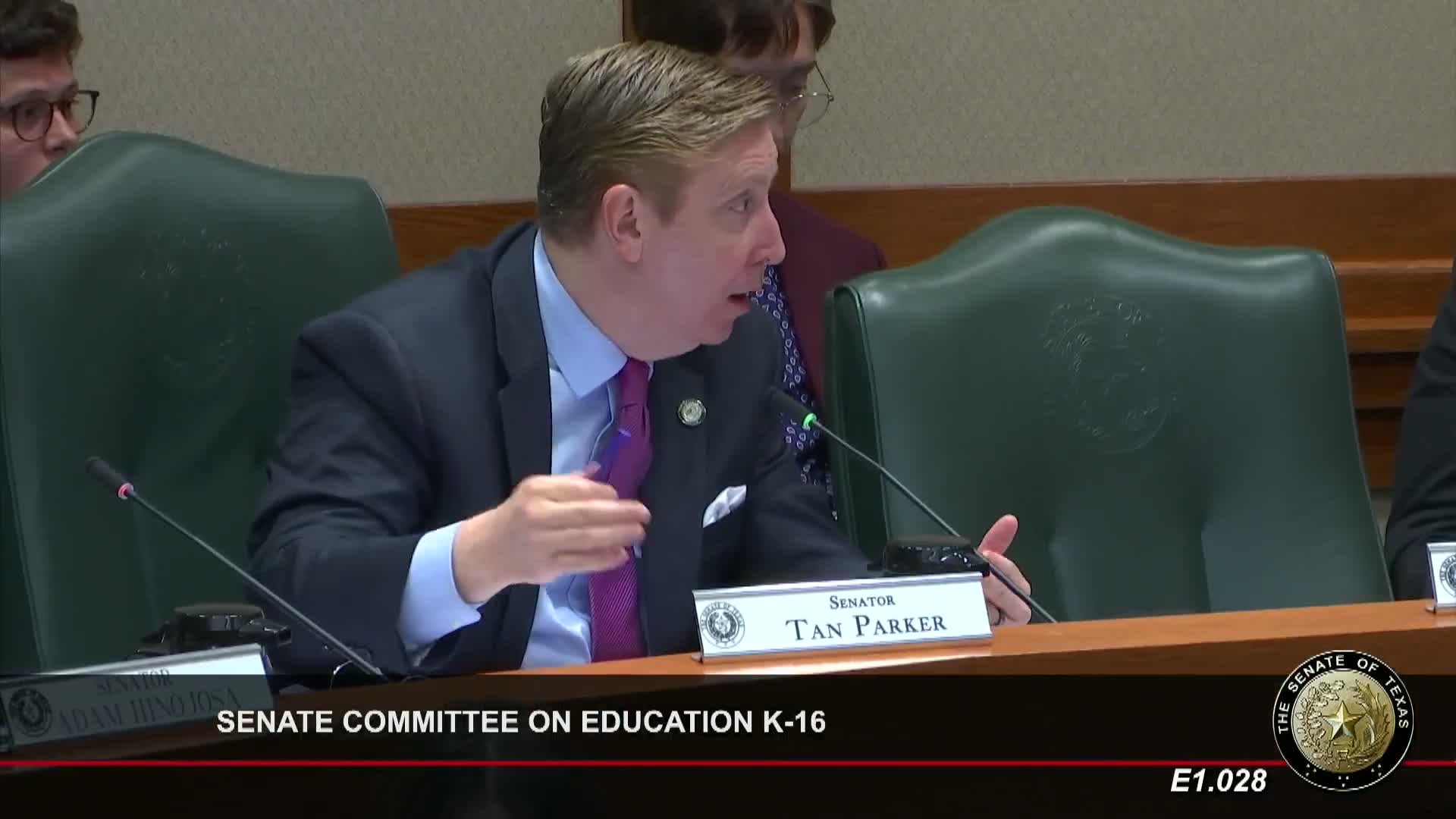
Teacher testimony highlights sick-leave donation bill’s personal stakes; committee advances measure
